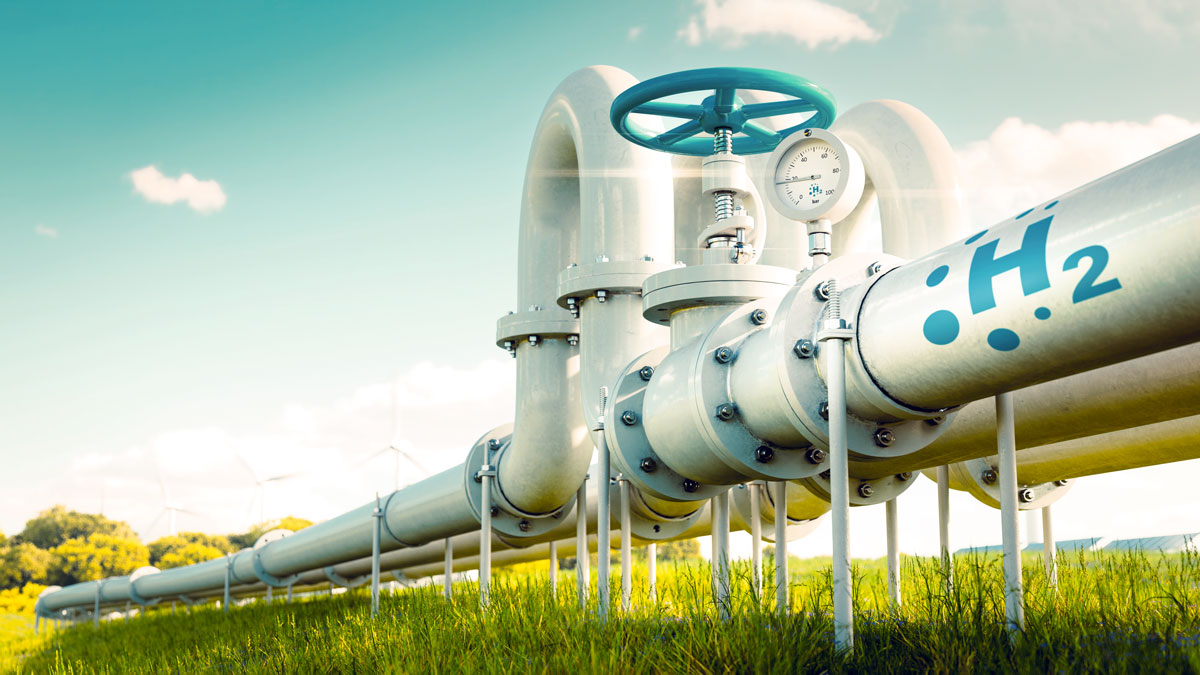Germany’s ambitious goal to achieve climate neutrality by 2045 relies heavily on hydrogen, with the government investing billions to develop this technology and planning to import a significant portion from abroad, despite the challenges and potential delays.

Hydrogen’s role in decarbonizing industry
Germany’s steel industry, particularly in the Ruhr area, exemplifies the pressing need for decarbonization. At thyssenkrupp Steel in Duisburg, four large blast furnaces produce about ten million tons of steel annually, resulting in 20 million tons of CO2 emissions each year. “We aim to change that,” says Matthias Weinberg, head of the Metallurgy Center at thyssenkrupp. The company plans to transition its steel production to hydrogen, projecting an annual CO2 reduction of 3.5 million tons. This initiative is among the largest decarbonization projects worldwide.
Hydrogen, as Tom Smolinka from the Fraunhofer Institute notes, is a versatile energy carrier with potential applications across various sectors, including steel, chemical industries, transportation, and power plants. The German government is keen on establishing hydrogen as a key energy source. However, the technology is still in its nascent stages, with only small pilot projects currently operational, making it costly and requiring significant infrastructure development.
Infrastructure and investment requirements
The development of a hydrogen economy necessitates substantial investments in production facilities, known as electrolyzers, and an extensive network of pipelines, estimated at 10,000 kilometers, to transport hydrogen. Additionally, industries like steel and cement will need to retrofit their plants to utilize hydrogen, all of which demand billions of euros in investments.
Despite these challenges, the government anticipates a surge in hydrogen demand in the coming years, to the point where domestic production alone will be insufficient. The Federal Ministry for Economic Affairs and Climate Action (BMWK) projects that 50-70% of hydrogen will need to be imported, potentially via pipelines or ships.
Economic Affairs Minister Robert Habeck states, “The quickest implementation would be a pipeline to Denmark and further to Norway. We are also in discussions with the UK and Ireland about building a pipeline.” Imports from France, Spain, and Portugal are also considered, along with utilizing existing gas pipelines from Algeria as another import route.
Global competition for hydrogen
Despite having energy and hydrogen partnerships with around 40 countries, most of these plans remain theoretical. The focus now is on securing a share of the hydrogen market as production scales up globally. The specifics of where the hydrogen will come from and the overall costs remain uncertain. However, the government is already investing heavily to establish hydrogen in Germany.
Opposition parties CDU and CSU have voiced concerns about these plans. Andreas Jung, the CDU/CSU’s energy policy spokesperson in the Bundestag, stresses the need to better utilize European potentials and fears a European price war for hydrogen. “Our goal should be a joint European procurement,” he argues, comparing the situation to the procurement of COVID-19 vaccines, where competition for limited resources drove up prices.
Yvonne Ruf, a hydrogen expert at consulting firm Roland Berger, is also skeptical. “We won’t be able to meet the timeline for hydrogen deployment in Germany, and we are lagging in infrastructure development for imports,” she says, criticizing the overly optimistic targets for production capacities.
However, optimism prevails at thyssenkrupp in Duisburg. The first hydrogen plant in steel production is set to be operational by 2027. “We trust the government to establish a hydrogen supply,” says Weinberg. “Otherwise, we wouldn’t be building this new facility.”
Strategic importance of hydrogen
Hydrogen is seen as a cornerstone of Germany’s strategy to decarbonize its economy and achieve climate neutrality by 2045. The significant investments and ambitious plans reflect the government’s commitment, but the success of these initiatives will depend on overcoming substantial technical, economic, and geopolitical challenges.
Germany’s hydrogen strategy aligns with broader European and global efforts to transition to cleaner energy sources. The IEA notes that hydrogen could meet up to 24% of global energy demand by 2050 if the necessary investments and policies are implemented. This transition is critical in addressing climate change and achieving the Paris Agreement goals.
As Germany moves forward with its hydrogen plans, collaboration with international partners, substantial investments in infrastructure, and clear regulatory frameworks will be essential to realizing its vision of a hydrogen-powered, climate-neutral future.







